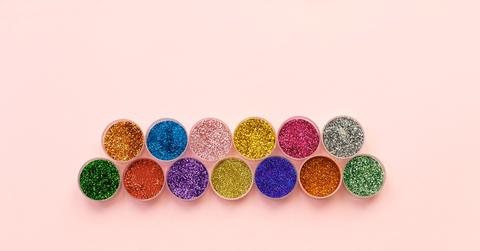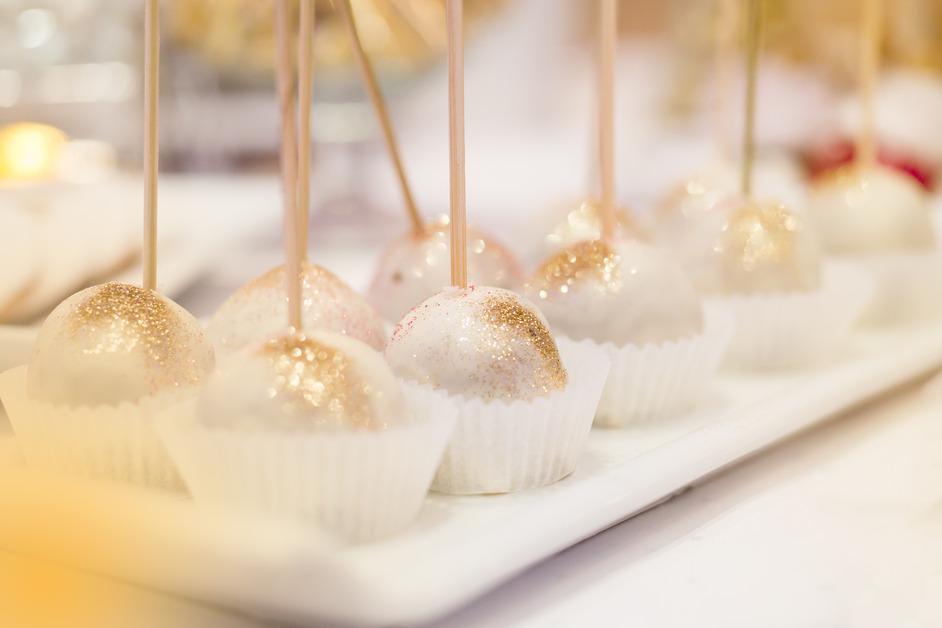Should You Actually Be Eating Edible Glitter? Not All That Glitters Is Food
Published June 14 2023, 12:44 p.m. ET

There is no doubt that we eat with our eyes first, but did you know that the color and appearance of food are actually sensory cues? The more color and light, the more serotonin, the hormone responsible for happiness.
So, no wonder we are drawn to things like edible glitter, which can make the pale cup of coffee a rainbow masterpiece. But before you hop on the trend of making everything on your plate look magical, is edible glitter safe to eat?

What is edible glitter made of, and is it safe to eat?
Edible glitter is precisely how it sounds. It’s an edible glitter garnish for drinks and food to add a festive sparkle.
Brew Glitter®, a popular edible glitter brand, sells drink glitters and edible glitter sprays that are vegan, Kosher, and Halal certified gluten-free, and GMO-free, as well as FDA-approved ingredients.
That said, it’s still normal to have doubts before putting edible glitter in your mouth. Even when something says edible, it doesn’t necessarily mean it is good for you.
Brew Glitter® has information sheets like Certificates of Analysis (COA), Safety Data Sheets (SDS), and microbiology testing documents on its website for each product for anyone worried about its safety or compliance.
The ingredients vary by color and glitter type but include mostly additives. For example, looking at the Brew Glitter® pink beverage glitter, the ingredients include Mica-Based Pearlescent, Dextrose, Red 3, and Red 40 Lake.
So, with this, edible glitter is safe to eat, but do not expect to get any nutritional value from eating it, and probably don’t eat it by the handful.
Is edible glitter better for the environment than regular glitter?
Most regular glitters do not biodegrade. This is because glitter is essentially a pile of sparkly microplastics, according to Discover Magazine.
Joel Baker, a marine pollution expert and environmental scientist at the University of Washington Tacoma, told Discover, "There [is] no crisp definition of microplastics, but I would certainly consider glitter to be a microplastic. It’s in the right size range and contains synthetic polymers."
The use of eco-friendly, biodegradable glitter (the kind that is not edible) has been surfacing on the internet as an alternative to regular glitter, which is made of harmful microplastics. Still, it’s not good for the environment either.
A study published in 2020 found biodegradable glitter damaging to freshwater habitats and “no better for the environment” than regular glitter. Why? The biodegradable glitter is still coated with a plastic layer, meaning the “biodegradable” part is really just greenwashing.
On the other hand, edible glitter, specifically the Brew Glitter® line, claims to be biodegradable. However, Brew Glitter® says they use natural and synthetic mica in their glitters, a silicate mineral used in many makeup products and, according to Lush, not biodegradable.
On its technical data sheet Brew Glitter® does make the statement, “Please note, most 'claimed' edible glitters on the market may not be biodegradable, and our biodegradable food safety statement is only specific to the edible glitter products manufactured and produced by Brew Glitter®.”
So, if it does biodegrade, it would be much better for the environment than regular glitter.
Please do not eat regular glitter.
Whatever you do, please double-check your labels to ensure the edible glitter you bought is not regular. Regular glitter is basically a pile of microplastics, which is not something you want in your body.